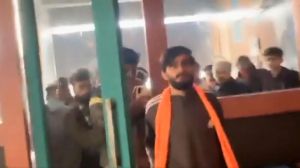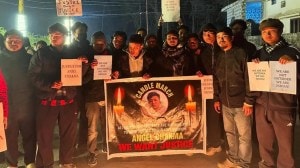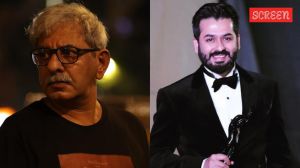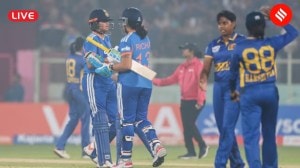2008: an atomic calendar
At a cabinet meeting on Christmas Eve, Prime Minister Manmohan Singh had to withdraw...

At a cabinet meeting on Christmas Eve, Prime Minister Manmohan Singh had to withdraw the home ministry8217;s proposal to impose President8217;s rule in Nagaland due to a difference of opinion among his colleagues attending the meeting. This, when Nagaland Governor K. Sankaranaraynan had categorically recommended imposition of President8217;s rule in the state due to a constitutional breakdown during a Congress-sponsored no confidence motion on December 13 against the Neiphiu Rio government. Even though Rio8217;s government was clearly in minority due to recent defections, the speaker of the assembly favoured the ruling alliance as he ruled that votes of defectors could not be counted, and thus the motion was defeated.
With the Left parties already opposed to the imposition of President8217;s rule in Nagaland, External Affairs Minister Pranab Mukherjee expressed his apprehension on whether the government could get it ratified in Parliament if the Left and the BJP both voted against it. Sports Minister Mani Shankar Aiyar joined hands with RJD8217;s Lalu Prasad Yadav and Lok Janashakti Party8217;s Ram Vilas Paswan to question the logic behind Home Minister Shivraj Patil8217;s move to impose President8217;s rule two months before the Nagaland Assembly completed its scheduled term. Faced with open dissension from the UPA allies and his senior cabinet colleagues, the proposal was indefinitely deferred by Manmohan Singh.
For trackers of politics at Raisina Hill, this decision is emblematic. After all, the Left8217;s veto, pressure from the allies to ward off early general elections and uncharacteristic opposition from the BJP have already combined to force Manmohan Singh to take one step forward and two steps back on the Indo-US nuclear deal. With the window on the passage of Indo-US nuclear deal in Washington closing by July 31, the uncertainty is mounting. Political reverses in Gujarat and Himachal Pradesh have added to the UPA government8217;s discomfiture, and as of today Manmohan Singh, perhaps, is the last man standing on the deal. And given the present mindset of the Congress leadership, the nuclear deal is the last thing on their minds.
However, the time has come for the PM and the Congress to take a final call on the deal. The draft agreement with the IAEA requires one more meeting before the India-specific safeguards are locked and put up to the nuclear watchdog8217;s board for approval. Given the state of political play, the PM knows very well that even if he junks the nuclear deal, it will not stop the Left from breathing down his neck for the remaining period of his government.
It is not only the Congress that has to bite the bullet on the nuclear deal. The situation in the other national party, the BJP, is no different. The BJP has still not been able to harmonise its policies with the aspirations of its core constituency in the growing middle class. The unwritten rule is that the economic uplift of the rural masses to largely urban aspirations is in the interest of the BJP. Yet, the BJP8217;s Uttar Pradesh state president, Ramai Ram Tripathi, inexplicably, wants to launch a 8216;Ram aur Ganga Bachao Andolan8217; against Mayawati8217;s Ganga Expressway project. Tripathi, a Rajnath Singh acolyte, obviously has got his development paradigm all wrong as per capita income gains due to increased economic opportunities will give electoral gains to his party and not to the ostensibly pro-poor Congress.
At a time when the BJP8217;s prime-ministerial candidate, L.K. Advani, talks about his party being on a 8220;comeback trail8221;, the party will have to do some serious introspection on its stand on the nuclear deal. The stated party position that it will renegotiate the nuclear deal with the US if it comes to power at the Centre does not hold water. Advani may rebuff all overtures from Manmohan Singh for support on the nuclear deal but the BJP must explain on what basis it will renegotiate it and with whom in the US. The fact is that there is serious pressure building within the party to have a relook at its stance on the deal as the core BJP voter is in favour of strategic engagement with the US and the nuclear agreement.
Already, James Steinberg, dean of Texas University at Austin and widely tipped to be the foreign policy wonk in case Hillary Clinton comes to the White House, has indicated that a Democrat administration would seek ratification of the CTBT. In an article in Foreign Affairs, Hillary Clinton wrote: 8220;I will also seek Senate approval of the Comprehensive Test Ban Treaty by 2009, the tenth anniversary of the Senate8217;s initial rejection of the agreement. This would enhance the United States8217; credibility when demanding that other nations refrain from testing.8221;
Simply put, even if it came to power, the BJP or NDA would not have a George Bush administration for ever waiting for renegotiation on the deal. What happens if a Democrat administration is sworn in in January 2009? Lest the BJP should forget, during the Bill Clinton administration, there were five benchmarks of the unfinished Strobe Talbott-Jaswant Singh dialogue: CTBT, FMCT, export controls adherence to NSG and MTCR guidelines without any quid pro quos, strategic restraint pertaining to missile development and deployment and India-Pakistan dialogue on Kashmir. It should also not forget that President Clinton had, during his famous nine-day visit to China in June-July 1998, sought to make common cause with China on dealing with the nuclear issue in South Asia, thereby mocking our claim at that time on the reason for the tests.
Now the BJP, like the Congress, has its own bunch of armchair strategists. Talk to Murli Manohar Joshi on the nuclear deal and he will argue that there is no need to take uranium from the Americans, as vast reserves are available in Central Asia. Tell him that NSG guidelines prohibit such nuclear commerce and the veteran physicist will suggest you ways of circumventing it. While there are some within the BJP who even believe that India could get uranium from other A.Q. Khans in the world, others in the party are still bogged down in the tedious clauses of the 123 Agreement or the Hyde Act.
Given the state of confusion in both the mainstream parties over the nuclear deal and its electoral fallout, the need of the hour is that the Congress and the BJP engage each other in a comprehensive dialogue to quickly thrash out issues. The Left-UPA dialogue mechanism has already been reduced to a charade, with Prakash Karat and Co turning deaf to any reason offered by Congress interlocutors. Rather than betting on the wrong horse on account of short-term political gains, it is time Congress President Sonia Gandhi, Manmohan Singh and Advani resolved to take decisions in 2008 with India8217;s long-term interests in mind.
shishir.guptaexpressindia.com
- 01
- 02
- 03
- 04
- 05































